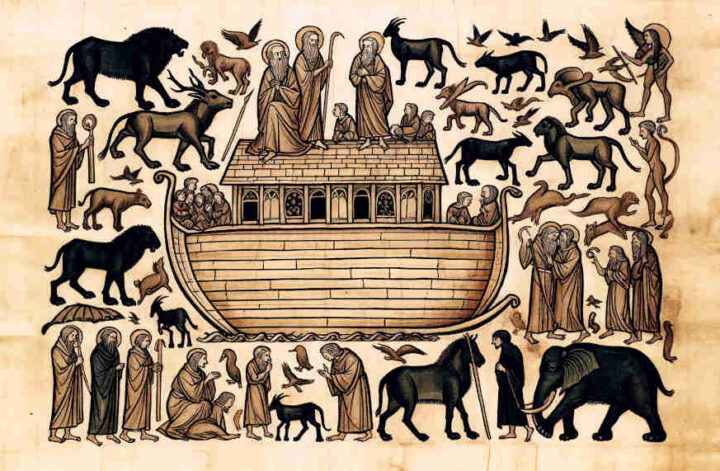From: Kevin Johnson
Subject: Jehovah’s Witnesses and the Noahide Laws
Dear Rabbi Joshua,
I am keenly interested in understanding the relationship between different faiths and Judaic laws. In this context, I would like to know about the compatibility of the beliefs of Jehovah’s Witnesses with the Noahide Laws. Furthermore, is it possible for someone to be both a follower of Jehovah’s Witnesses and a Noahide? I look forward to your insight on this matter.
Regards,
Kevin Johnson
Overview of Jehovah’s Witnesses
Jehovah’s Witnesses is a Christian denomination known for its distinct beliefs, which include the sole worship of Jehovah (a rendering of God’s name based on the Tetragrammaton), the rejection of the Trinity doctrine, and a unique interpretation of the Bible. They emphasize living a moral life, engaging in regular Bible study, and active evangelism.
The Seven Noahide Laws in Judaism
In Jewish tradition, the Seven Noahide Laws are a set of universal ethical guidelines given by God to Noah after the flood. These laws are:
- Prohibition of Idolatry
- Prohibition of Blasphemy
- Prohibition of Murder
- Prohibition of Illicit Sexual Relations
- Prohibition of Theft
- Prohibition of Eating Flesh from a Living Animal
- Establishment of Courts of Law (Requirement of Justice)
Comparison of Jehovah’s Witnesses Beliefs with the Noahide Laws
Let’s examine the alignment of Jehovah’s Witnesses’ doctrines with each Noahide Law:
- Prohibition of Idolatry: Jehovah’s Witnesses’ emphasis on the sole worship of Jehovah aligns closely with the Noahide Law against idolatry.
- Prohibition of Blasphemy: Their deep reverence for God and strict adherence to what they believe to be His commandments resonate with the prohibition of blasphemy.
- Prohibition of Murder: Jehovah’s Witnesses uphold the sanctity of life, which is in line with the prohibition of murder.
- Prohibition of Illicit Sexual Relations: They advocate for moral purity and marital fidelity, corresponding with this Noahide principle.
- Prohibition of Theft: Honesty and integrity are key virtues in their teachings, aligning with the prohibition of theft.
- Prohibition of Eating Flesh from a Living Animal: While this is not a specific teaching, their general ethical values support humane treatment of animals.
- Establishment of Courts of Law: Jehovah’s Witnesses respect the laws of the land, which aligns with the Noahide requirement for justice and law, though they prioritize their religious laws when there is a conflict.
Can One Be Both a Jehovah’s Witness and a Noahide?
The key aspect to consider here is the theological basis of the Noahide Laws in Judaism, which requires acknowledgment of their divine origin as per the Torah. Jehovah’s Witnesses, while aligning with many of the Noahide Laws in practice, derive their beliefs and practices from their interpretation of the Bible, which differs significantly from traditional Jewish teachings.
Therefore, while a Jehovah’s Witness might adhere to many of the Noahide Laws in terms of ethical conduct, fully embracing the role of a Noahide would require recognizing these laws as divinely ordained in the Jewish tradition. This recognition may present theological conflicts given the distinct beliefs and scriptural interpretations held by Jehovah’s Witnesses.
In conclusion, while there is a considerable overlap in terms of moral and ethical practices, the theological differences between Jehovah’s Witnesses and traditional Judaism might complicate the simultaneous adherence to both paths in their entirety.
Kind regards,
Rabbi Joshua



